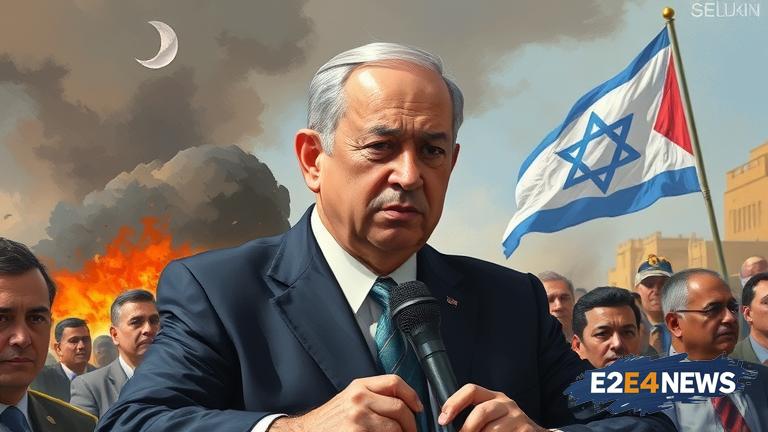The Israeli-Palestinian conflict has taken a dramatic turn as Prime Minister Benjamin Netanyahu is advocating for a full occupation of the Gaza Strip. This move has sparked widespread concern and criticism from the international community, with many fearing it could lead to a significant escalation of violence and a humanitarian crisis. The Gaza Strip has been a focal point of the conflict for decades, with Israel and Hamas, the Islamist group that controls the territory, engaging in periodic bouts of violence. Netanyahu’s push for occupation comes amid a surge in tensions between Israel and Hamas, with both sides exchanging rocket fire and airstrikes. The Israeli military has been conducting operations in Gaza, targeting Hamas militants and infrastructure, while Hamas has been launching rockets into Israeli territory. The situation on the ground is dire, with many civilians caught in the crossfire and struggling to access basic necessities like food, water, and medical care. The international community has been calling for a ceasefire and a return to negotiations, but so far, a lasting resolution has proven elusive. The United States, a key ally of Israel, has been criticized for its response to the crisis, with some arguing that it has not done enough to pressure Israel to pursue a peaceful resolution. The European Union has also been vocal in its criticism of Israel’s actions, with many member states calling for an immediate ceasefire and a return to negotiations. The humanitarian situation in Gaza is precarious, with many residents struggling to access basic necessities. The territory’s economy is in shambles, and the healthcare system is on the brink of collapse. The psychological toll of the conflict on civilians, particularly children, is also a major concern. Many are calling for an immediate end to hostilities and a return to negotiations, but it remains to be seen whether a lasting resolution can be achieved. The conflict has significant regional and global implications, with many fearing it could spark a wider conflict. The situation is further complicated by the presence of other militant groups in the region, including Islamic State and Al-Qaeda. The Israeli government has argued that its actions are necessary to protect its citizens from the threat posed by Hamas, but many argue that the response is disproportionate and will only serve to exacerbate the situation. The Palestinian Authority, which governs the West Bank, has been critical of Israel’s actions, arguing that they will only serve to undermine efforts to achieve a peaceful resolution. The international community must come together to pressure both sides to pursue a peaceful resolution, and to address the underlying issues driving the conflict. A lasting resolution will require significant concessions from both sides, including a willingness to compromise on issues like borders, settlements, and Jerusalem. The situation in Gaza is a stark reminder of the need for a comprehensive and lasting resolution to the Israeli-Palestinian conflict. The international community must do more to support efforts to achieve a peaceful resolution, including providing humanitarian aid and supporting negotiations. The conflict has significant implications for regional and global stability, and it is imperative that a lasting resolution is achieved as soon as possible. The Israeli government must be held accountable for its actions, and the international community must do more to support the Palestinian people in their quest for statehood and self-determination.





